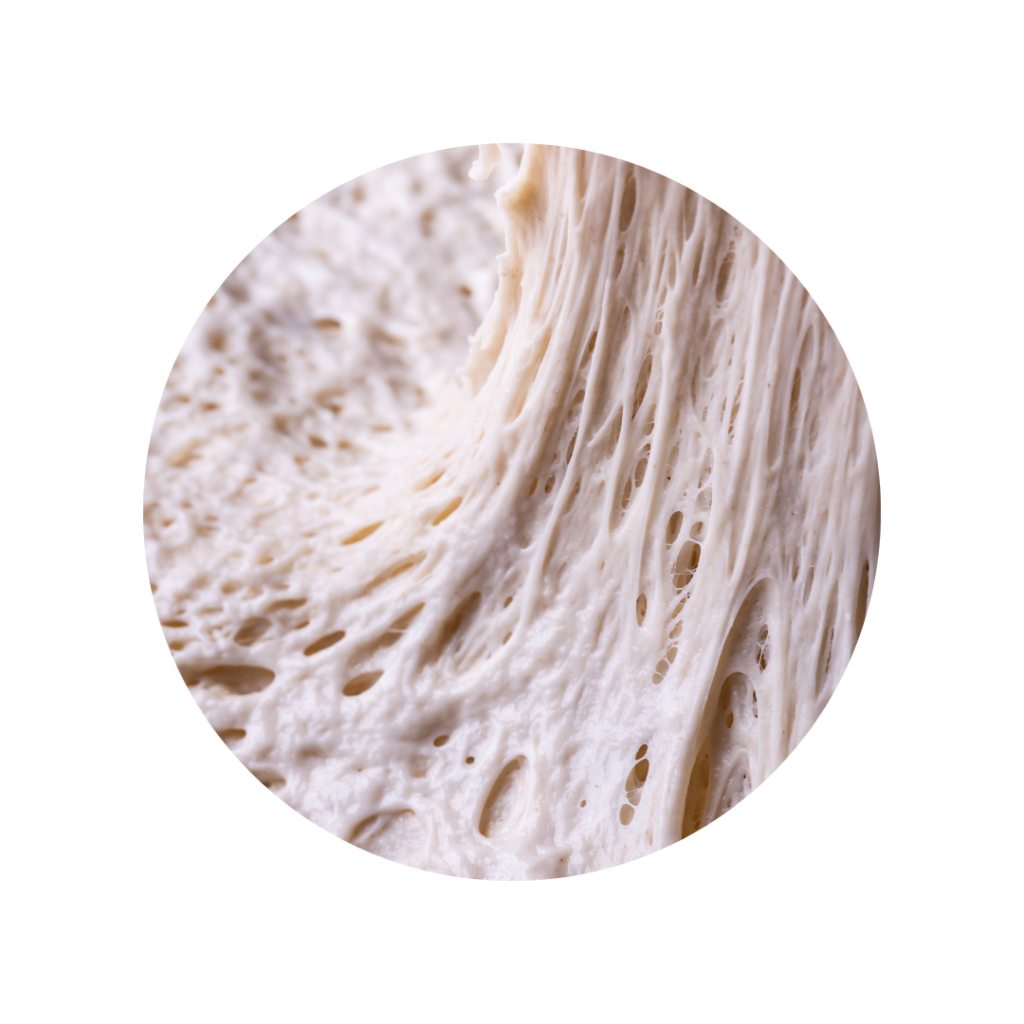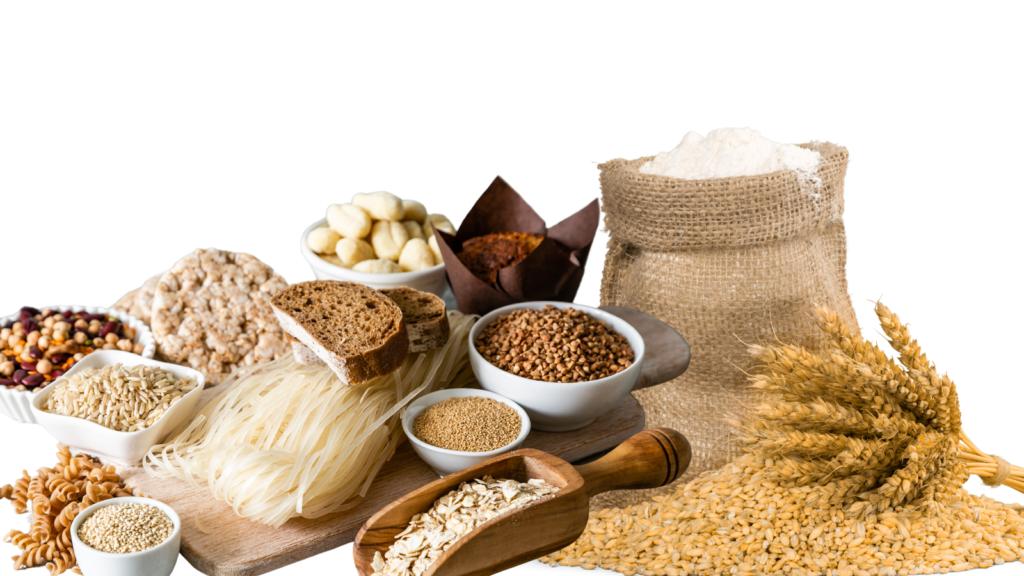
Getting to know Gluten
Gluten is a storage protein made up of core amino acids proline and glutamine. These non-essential amino acids are collectively called prolamins, mostly found in the endosperm of grass grains. Consequently, each grain has its unique prolamin fractions; gliadin (wheat), secalin (rye), and hordein (barley). Additionally, prolamin fraction consists of two subgroups gliadin and glutenin. Above all, wheat (gliadin) is considered the true gluten, while both barley and rye only share similar characteristics.
Gluten is naturally occurring, yet it can be extracted, concentrated, and added to food and other products to add protein, texture, and flavor. It also works as a binding agent to hold processed foods together and give them shape.



Why is it so hard to digest?
In normal digestion, long strands of protein are broken down by digestive enzymes. Protease cleave or break off groups of amino acids into smaller units, called peptides. Most of these peptides can be further broken down, absorbed through the intestine, and then transported and used in the body. However, proline and glutamine prevent these proteins from being completely digested as they are very packed and dense.
Is it bad?
Gluten found in whole grains is not harmful to most healthy individuals who can tolerate it. Interestingly, humans have been consuming it since the ancient times when bread first came into existence. Although, it’s worth noting that proline and glutamine are classified as non-essential amino acids, therefore our bodies can synthesize them.
Meanwhile, studies have shown that undigested gluten is an irritant. It can inflame and separate the intestinal villi and allow prolamins and other undigested proteins as well as toxins to move into circulation surrounding the digestive tract.
Factors Behind the Surge of Gluten related issues
- The popularity of Western diet that consist of pre-packaged foods and refined grains, in addition to the Mediterranean diet, which also comprises grains, hence there is more exposure.
- The hybridization of wheat thus producing a hard to digest complex starch.
- The growing replacement of rice with wheat in many countries. Although Rice is indeed gluten-free.
- The reduction of dough fermentation time. Fermentation breaks down dense proteins, though it doesn’t entirely remove all the gluten. It may, however, eliminate a significant portion.
Types of gluten-related disorders:
- Autoimmune disorders: celiac disease, dermatitis herpetiformis, ataxia
- Allergies: food allergy, wheat dependent exercise induced anaphylaxis (WDEIA), baker’s asthma, contact dermatitis.
- Non-autoimmune, non-allergic: non-celiac gluten sensitivity (NCGS)
A deep dive on Non-celiac Gluten Sensitivity.
NCGS is a syndrome in which people develop a variety of intestinal and/or extraintestinal symptoms that can improve when gluten is removed from the diet.
Gastrointestinal symptoms that may resemble irritable bowel syndrome include abdominal pain, bloating, bowel habit abnormalities (either diarrhea or constipation), nausea, aerophagia, gastroesophageal reflux disease, and aphthous stomatitis.
Extra-intestinal symptoms of NCGS may include headache, “foggy mind”, fatigue, fibromyalgia, joint and muscle pain, or dermatitis (eczema or skin rash), even in the absence of gastrointestinal symptoms.
How to manage gluten insensitivity:
- Follow a gluten-free diet strictly, which is low in preservatives and additives.
- Read ingredient or food labels carefully and be cautious about potential cross-contamination.
- In addition to gluten-free diet, try low short-chain carbohydrates (sugars) diet or FODMAPs diet (low fermentable oligosaccharides, disaccharides, monosaccharides and polyols). These sugars are poorly absorbed in the small intestine.
- Use digestive supplements that are clinically supported and known to be effective in easing gluten digestion.
- Try Bricker Labs GlutnGo it provides Tolerase G. A proline-specific endopeptidase. This enzyme is uniquely stable and active under the harsh conditions of the stomach.

Every individual deserves to lead a happy, fulfilling, and healthy life, irrespective of the challenges. It’s merely a matter of discovering the right solutions.

Let us know your thoughts!
Feel free to comment or email us: Customerservice@brickerlabs.com
Discover more of our blogs.
Gluten Sensitive? Order GlutnGo Now
Disclaimer: This blog post is for informational purposes only and should not replace professional medical advice. Always consult with a qualified healthcare provider before making any changes to your supplement or daily health regimen.